Talking Las Vegas Architecture
Last Friday and Saturday was the Vegas Valley Book Festival sponsored by Nevada Humanities and the City's Cultural Affairs Office.
On Friday, they had a variety of author's panels. Our favorite was the first one of the day with renowned architect author and critic, Alan Hess and Wayne McAllister biographer, Chris Nichols.
Alan Hess is one of the few people who understands Classic Las Vegas Architecture. He is the author of over 15 books, including the seminal "Googie" and "Viva Las Vegas: Architecture After Dark". Alan understands that the original landscape of the Strip was built for the automobile. His talks about the Roadside architecture that has all but been imploded was not only a walk down memory lane but also a reminder that Classic Las Vegas architecture was always more than the kitsch factor that it usually gets regulated to today.
He had a wonderful pictures of everyone's favorite, The Dunes Sign as well as examples of the original front of the Sands, the El Rancho, the Frontier and many more.
I could listen to Alan talk for hours on Las Vegas architecture, history and Googie. He has recently done the interpretive history of one of our most favorite mid-century landmarks, the Morelli House. This is the house that the Junior League saved from the destruction of the Desert Inn Country Club Estates. Built for Sands Orchestra Leader, Antonio Morelli and his wife, the house is being lovingly restored by the Junior League.
The house is located across the street from the original Las Vegas High School at 8th Street and Bridger. It is opened a few times a year for tours and I highly recommend this to everyone!
Joining Alan on the panel was author and preservationist, Chris Nichols. Chris was one of the charter members of the Los Angeles Conservancy's Modern Committee, a group within the Conservancy dedicated to helping preserve mid-century Los Angeles buildings and signage. Back in the mid-1990s, Chris had the good fortune to meet architect Wayne McAllister and that meeting forever changed his life.
As readers of our Brief History of Fremont Street and our Brief History of the Strip know , Wayne McAllister was one of the first architects to realize the potential of Las Vegas. He designed the El Rancho Vegas, worked for a short time on the original Flamingo, designed the Sands and the Fremont Hotel. Working with Young Electric Sign Company, YESCO, he understood the neon component of signage and how to make it work for Las Vegas.
Chris gave a rousing talk on the history of McAllister and his various accomplishments not only in Las Vegas but in Mexico, Los Angeles and elsewhere.
After First Friday, our pals at the Atomic Age Alliance organized a Midnight Tour of Las Vegas Architecture. Over 60 people piled into the open air double decker bus for a rare look at still standing Classic Las Vegas Architecture. The tour lasted from 10:00 pm to almost 1:00 am, making it a delightful three hour tour.
Stops along the way included the venerable Golden Steer on West Sahara just across from the vacant lot that once held the El Rancho Vegas, the Venetian Hotel for a group shot on the location of the famed Rat Pack photo from 1960 as well as a private home, lovingly restored, in Paradise Palms.
Kudos to Nevada Humanties, City Cultural Affairs, Richard Hooker and Mary Margaret Stratton for making last Friday a wonderful day and night of Classic Las Vegas history and architecture.
And special thanks to our pals Alan Hess and Chris Nichols for not only speaking so eloquently about it but also serving as tour guides for the Midnight Tour.
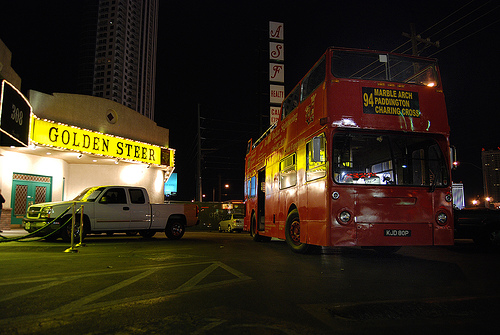
Bus at the Golden Steer
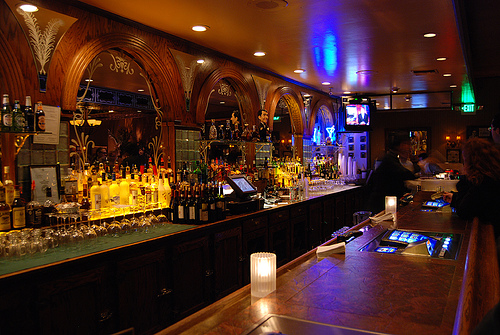
The interior and bar at the Golden Steer
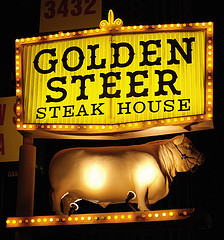
The Golden Steer Sign
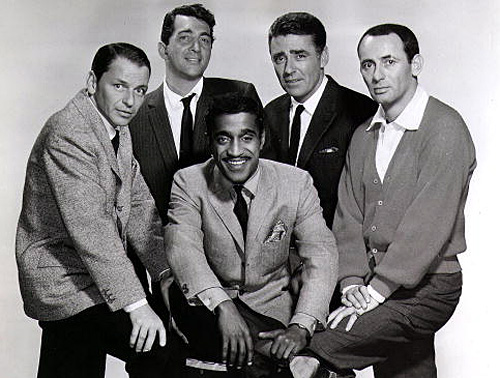
The Rat Pack in front of the Sands Sign, circa 1960
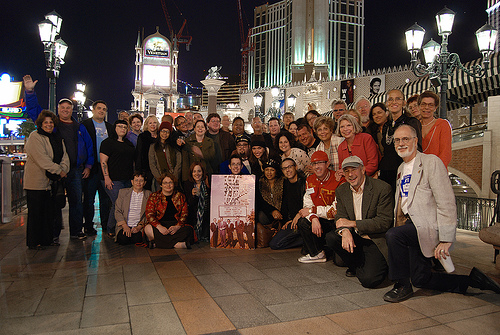
The Midnight Tour Gang at that same location on Nov. 2nd, 2007
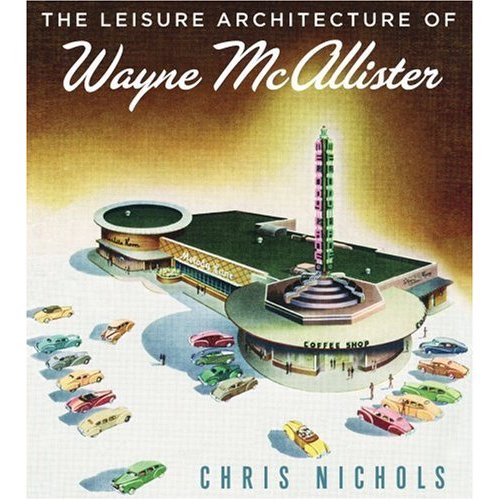
Chris Nichols' book on Wayne McAllister. But it here
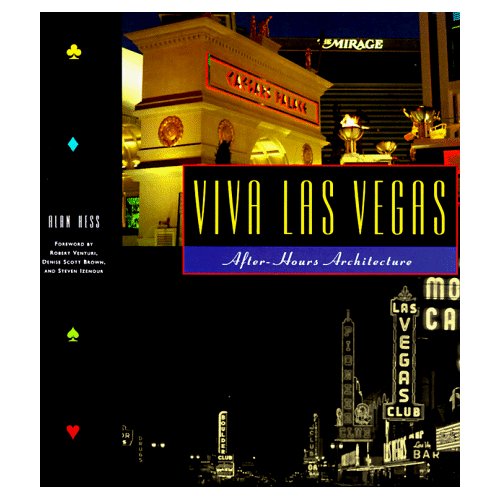
Alan Hess's book on Las Vegas Architecture. Buy it here
Special thanks as always to RoadsidePictures and VeryVintageVegas for letting us use their pictures.



Reader Comments